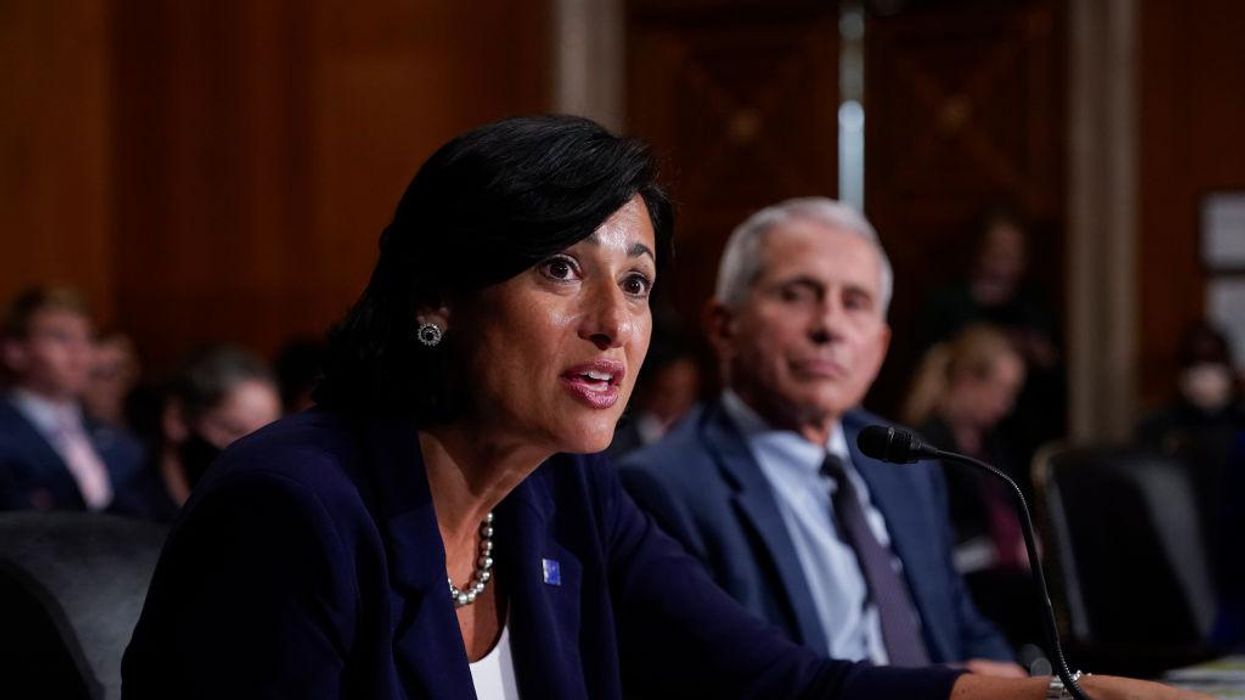
J. Scott Applewhite-Pool/Getty Images

The U.S. Centers for Disease Control and Prevention this week admitted it is hiding large portions of COVID-19 data it collects from the public because of fears the information could be misinterpreted. Yet the agency publishes other data that it openly admits hasn't been verified in an effort to promote the efficacy of COVID-19 vaccines.
On Sunday, the New York Times reported that CDC data on the effectiveness of COVID-19 booster shots released in February left out crucial information on adults age 18 to 49. According to the report, data showed this group was least likely to benefit from booster shots because the first two doses of the mRNA COVID-19 vaccines offered sufficient protection from the virus.
But sources told the Times that this data, and other data on hospitalizations for COVID-19 broken down by age, race, and vaccination status, have been withheld by the CDC for fear that people will get the wrong idea if it is released publicly.
CDC spokeswoman Kristen Nordlund told the paper that the agency has been slow to release certain data "because basically, at the end of the day, it's not yet ready for prime time." She said the agency's "priority when gathering any data is to ensure that it's accurate and actionable."
Nordlund also said another reason for holding data back is the fear that it might be misinterpreted, but she did not say how it could be. Presumably, the CDC is worried that raw data accessed by the public could be used to question federal guidance on COVID-19 prevention measures, including masking and vaccination.
Public health officials have accused those who make claims contrary to official guidance of promoting misinformation, especially when they raise questions about the efficacy of the COVID-19 vaccines. To be sure, data suggests that the vaccines are both safe and effective at preventing serious illness or death from the coronavirus, and those who are at high risk of complications from COVID-19 should talk to their doctor about the benefits of vaccination.
But there is an inconsistency from the CDC as some of the data released by the agency misleads about the risk of being unvaccinated against SARS-CoV-2.
An analysis of the CDC and the New York City Department of Health and Mental Hygiene published by TheBlaze on Monday found that data released by these agencies exaggerates the efficacy of the FDA-authorized COVID-19 vaccines. They do this in part by appearing to count each person for whom they cannot verify vaccination status as an "unvaccinated person."
As the CDC COVID Data Tracker page for "Rates of COVID-19 Cases and Deaths by Vaccination Status” explains in a footnote, "An unvaccinated person had SARS-CoV-2 RNA or antigen detected on a respiratory specimen and has not been verified to have received COVID-19 vaccine.”
That statement indicates that if the CDC cannot specifically verify an individual’s vaccination status by matching that report to a vaccination record, that individual is counted as unvaccinated for purposes of data reporting. As a result, CDC data will count at least some vaccinated people whose records are unverified as "unvaccinated," which will overstate the number of unvaccinated people that test positive for COVID-19, as well as the numbers for hospitalizations and deaths.
Case rates, hospitalizations, and deaths measured in unvaccinated people versus those who have been vaccinated are used by the CDC and other public health officials to show the efficacy of COVID-19 vaccines. A consequence of overestimating the number of unvaccinated people who contract the coronavirus (and of underestimating the number of vaccinated people who test positive as well) is that the vaccine's effectiveness is exaggerated. For more on how this happens, read here.
The CDC did not respond when asked why the agency is willing to publish unverified data to show the COVID-19 vaccines are effective but hides other data it claims is "not yet ready for prime time."